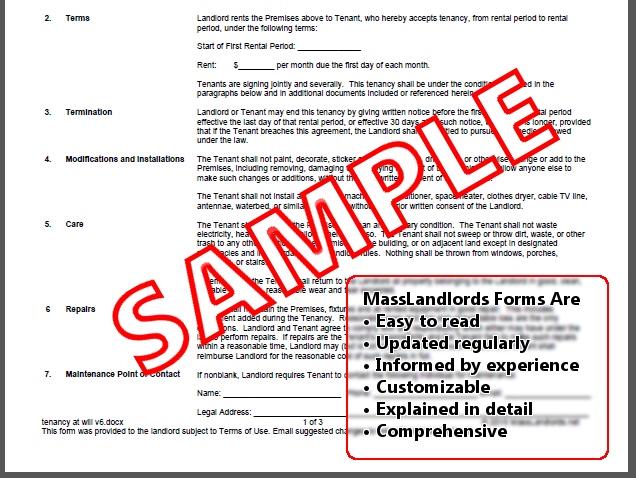Adverse Action Letter For Credit
The Fair Credit Reporting Act, as amended by Dodd Frank in 2010, requires creditors (that's you, landlord) to notify consumers (the tenants) when adverse action is taken. Adverse action in the case of landlord-tenant relations means "rejecting a tenant because of something on their credit report or because of their credit score." The form of notice is regulated by law and called an "adverse action letter" or "adverse action notice."
This notice must provide contact information for the reporting agency issuing the report, and if the score itself was used in your decision (even if all you did was look at it), you must also disclose the tenant's credit score and teach them about credit scores. In either case, you must also inform them of their rights to dispute the report. But they don't have the right to dispute your having rejected them. Your rejection can be final.
You must be very careful to follow the Fair Credit Reporting Act law and not just this form. If you obtain information from a consumer reporting agency not listed here, you must provide all the same information as what you see for Experian, etc. If any of you still use bad check reports or a source of eviction information besides MassCourts.org, you must provide their information, as well (if they're the reason you're rejecting the tenant.)
The form doesn't particularly contemplate that you might reject someone based on their self-reported score, in other words, not because of an actual report but because of what they imagine may be in their own report. In this case, at least send the link to the FTC website how to correct a credit score.
Revisions
- v1.2
- Updated contact information for credit bureaus.
- Removed information about the White Pages.
- General formatting improvements.
- v1
- First version
To view this form, you must be logged-in and a member in good standing

MassLandlords is a nonprofit dedicated to helping owners rent their property. We try our best, but we can't guarantee these forms will always work. We provide legal information but never advice particular to your situation. Nothing on this site is meant to create an attorney-client relationship. We advise you consult with an attorney.
Frequently Asked Questions
Do I need to issue an adverse action letter?
Q: I had a prospective tenant who I ran a credit and background check on and everything was good. I had approved him and we set a time to sign the lease. He then called me stating that he was withdrawing his application to rent my unit because his personal situation changed and he was no longer in need of a place to rent.
Since I ran his credit score, do I have to send him an adverse action letter or a copy of his report? I did not deny him based on his credit (in fact I approved him), but then he withdrew his application. I don't know what my obligation is now, if any, since I ran his score.
A: We are not attorneys, but we believe you do not need to issue an adverse action letter unless credit is a factor in your decision not to rent to an applicant. The applicant withdrew his application (and you had initially approved him anyway), so there is nothing more you need to do.
It is best practice to shred all his credit and background check information, and to keep a file summarizing the number of points you awarded to him for each part of the process, and what the final outcome was ("applicant's personal situation changed, no longer needed apartment, withdrew application").
Our applicant qualifier is an example of one place where you might keep these kinds of records.




